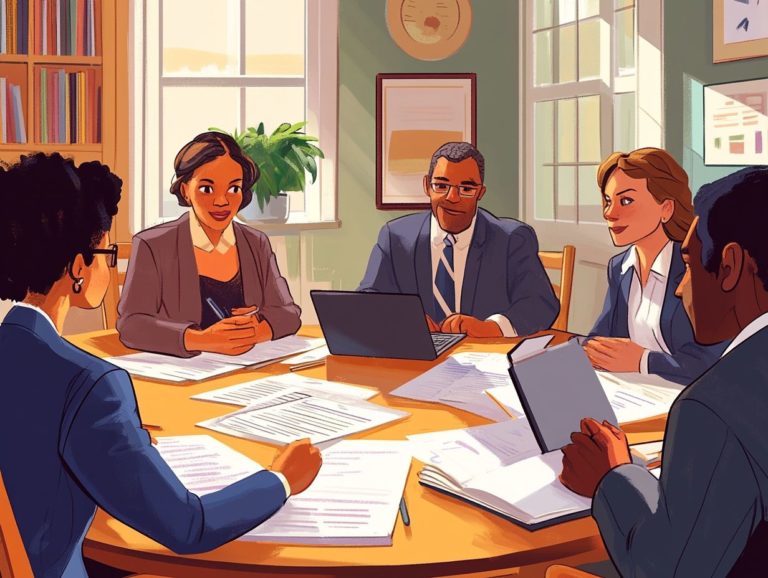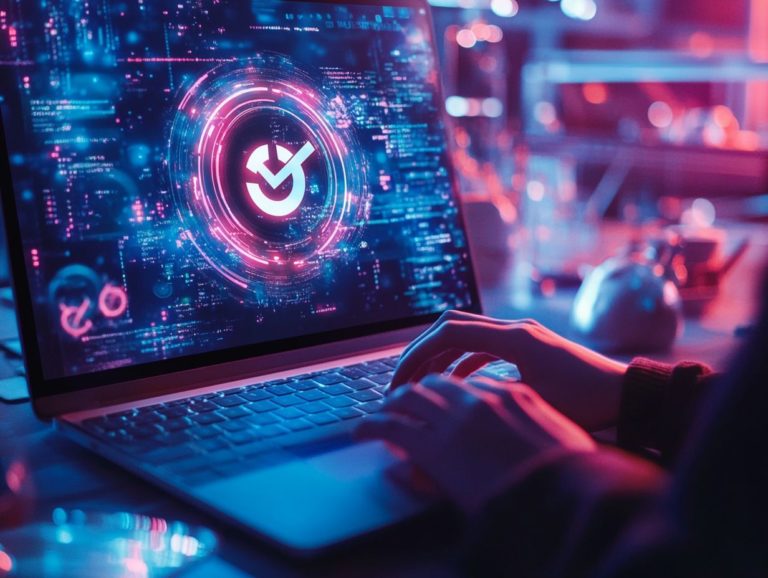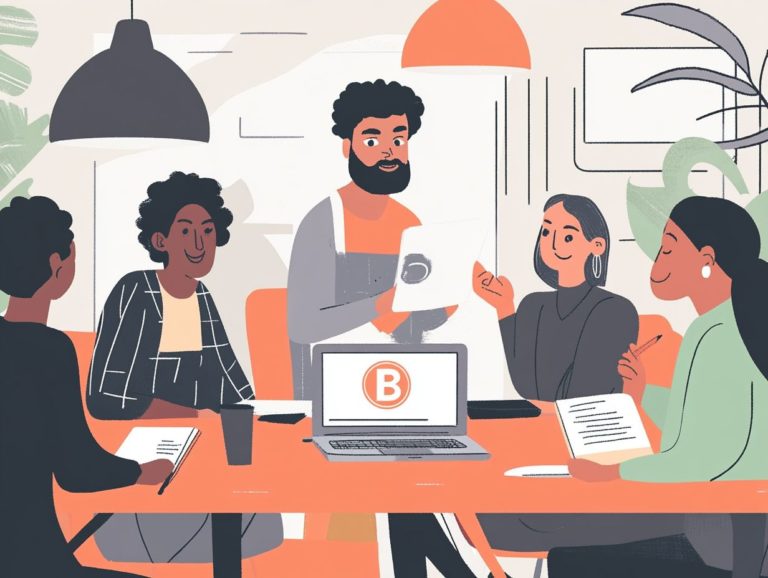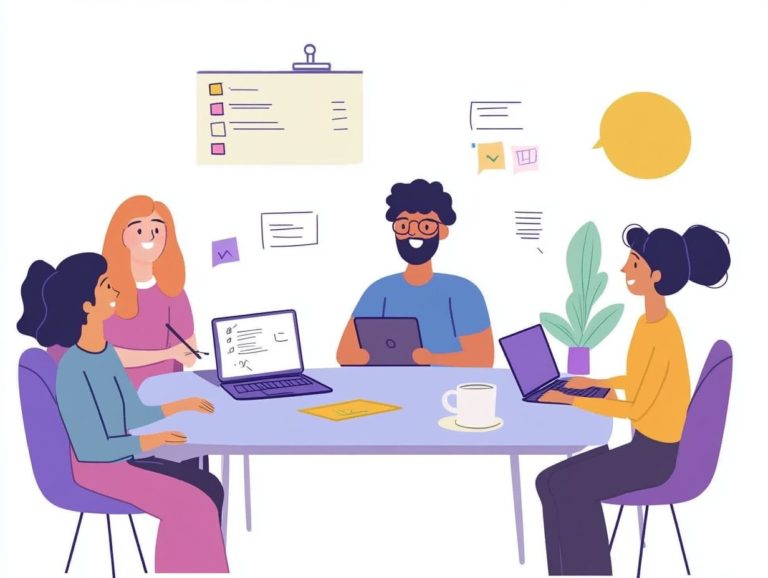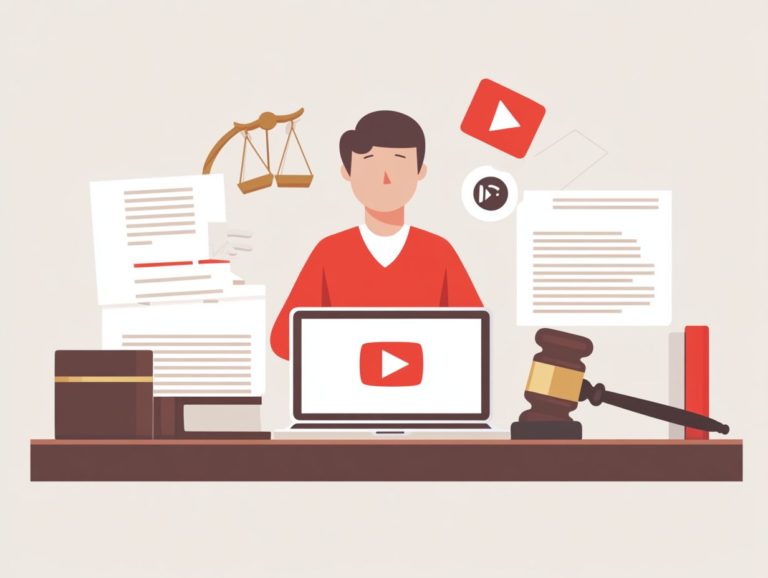The Importance of Copyright for Musicians
Copyright is an essential cornerstone for musicians. It protects your creative works and ensures you receive the recognition and compensation you deserve.
This article delves into what copyright truly means in the music industry. It outlines the benefits it provides and the common pitfalls you should steer clear of.
It guides you through the steps to register your music and discusses additional protection methods like contracts and trademarks.
You ll explore the evolving landscape of copyright and its implications for artists today. Dive in to equip yourself with the knowledge that can safeguard your passion and livelihood.
Contents
Key Takeaways:
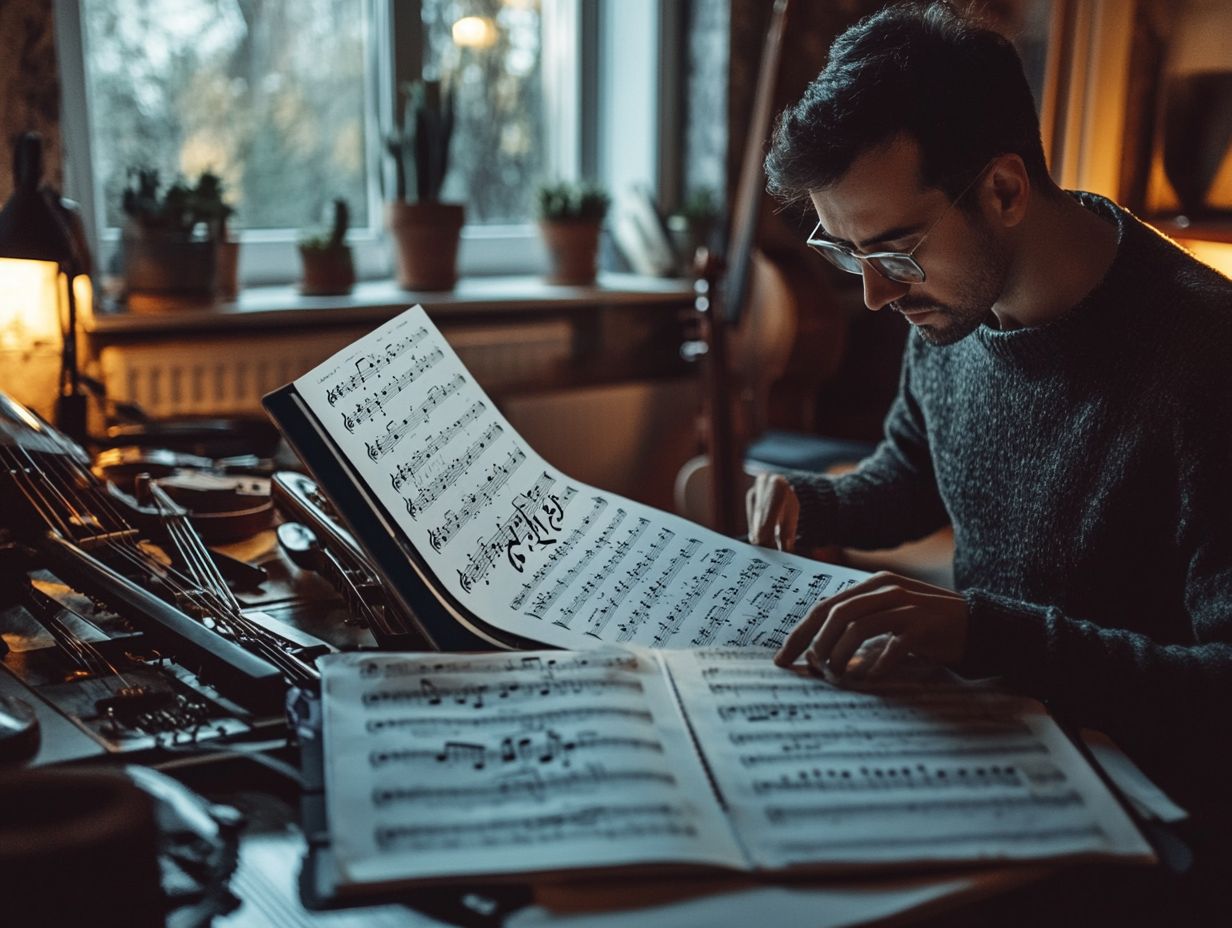
- Protect your original work with copyright.
- Register your music and use contracts for better security.
- Stay informed about copyright changes in the industry.
Understanding Copyright for Musicians
Understanding copyright is crucial in today s dynamic music industry. It directly impacts artists’ rights and protections for their original creations.
Copyright laws dictate ownership and usage of music, covering both sound recordings and musical compositions. Whether you re a legendary figure like Bob Dylan or an emerging talent, comprehending these laws is vital for safeguarding your intellectual property and maximizing your music royalties.
Without proper copyright registration, you open yourself up to unauthorized use and potential infringement. This can significantly jeopardize your career and earnings.
What is Copyright and How Does it Apply to Music?
Copyright is a legal framework that grants you exclusive rights to your original works. It creates a protective umbrella over your compositions and sound recordings in the music realm. This legal protection ensures that you maintain control over your artistic freedom and can exploit your creations within the music industry.
Copyright serves several vital purposes. Notably, it encourages creativity by safeguarding your monetary interests as a musician, and it is equally important for photographers. Understanding the importance of copyright for photographers allows you to generate revenue from your art.
Within the domain of music, there are two primary types of copyrights that you should be aware of:
- The copyright for musical compositions, which includes your melodies and lyrics.
- The copyright for sound recordings, which protects the actual performance and production of your music.
Understanding how these distinct yet interconnected copyrights function is essential for you as a musician. It helps you navigate the complexities of your rights and underscores the importance of securing your intellectual property against unauthorized use and exploitation.
The Benefits of Copyright Protection
The benefits of copyright protection go well beyond simple ownership. They encompass vital elements that can profoundly influence your career in the music industry, making understanding copyrights essential for success.
By securing copyright for your original work, you safeguard your artistic integrity. This enables you to license and distribute your music while earning the royalties you deserve. This legal framework allows you to take action against unauthorized use, protecting your artistic freedom and allowing you to flourish financially.
Securing Rights and Royalties
Securing your rights and royalties is an essential aspect of your journey as a musician. It ensures that you receive fair compensation for your creative contributions to the music industry.
Make sure you register your work. Copyright registration is a key step in this process, providing you with the legal foundation necessary to collect royalties from various platforms, including popular streaming services like Spotify and Apple Music.
By formally registering your work, you not only protect your creations but also simplify the payment process. This legal shield enables you to pursue any infringements more effectively.
Within the industry, various revenue streams await, such as:
- Performance royalties
- Mechanical royalties (payments for reproducing music on physical or digital formats)
- Sync licensing (selling the right to use your music in movies, TV shows, or ads)
Each offers unique income opportunities. To truly thrive, you must be proactive in managing your rights and royalties, potentially by utilizing distribution platforms that offer transparency and tracking tools.
Understanding how to navigate these channels will maximize your earnings and help you build a sustainable career in the ever-evolving music landscape.
Don t miss out on the chance to protect your passion! Start your copyright registration today to safeguard your creative future!
Copyright Infringement in the Music Industry
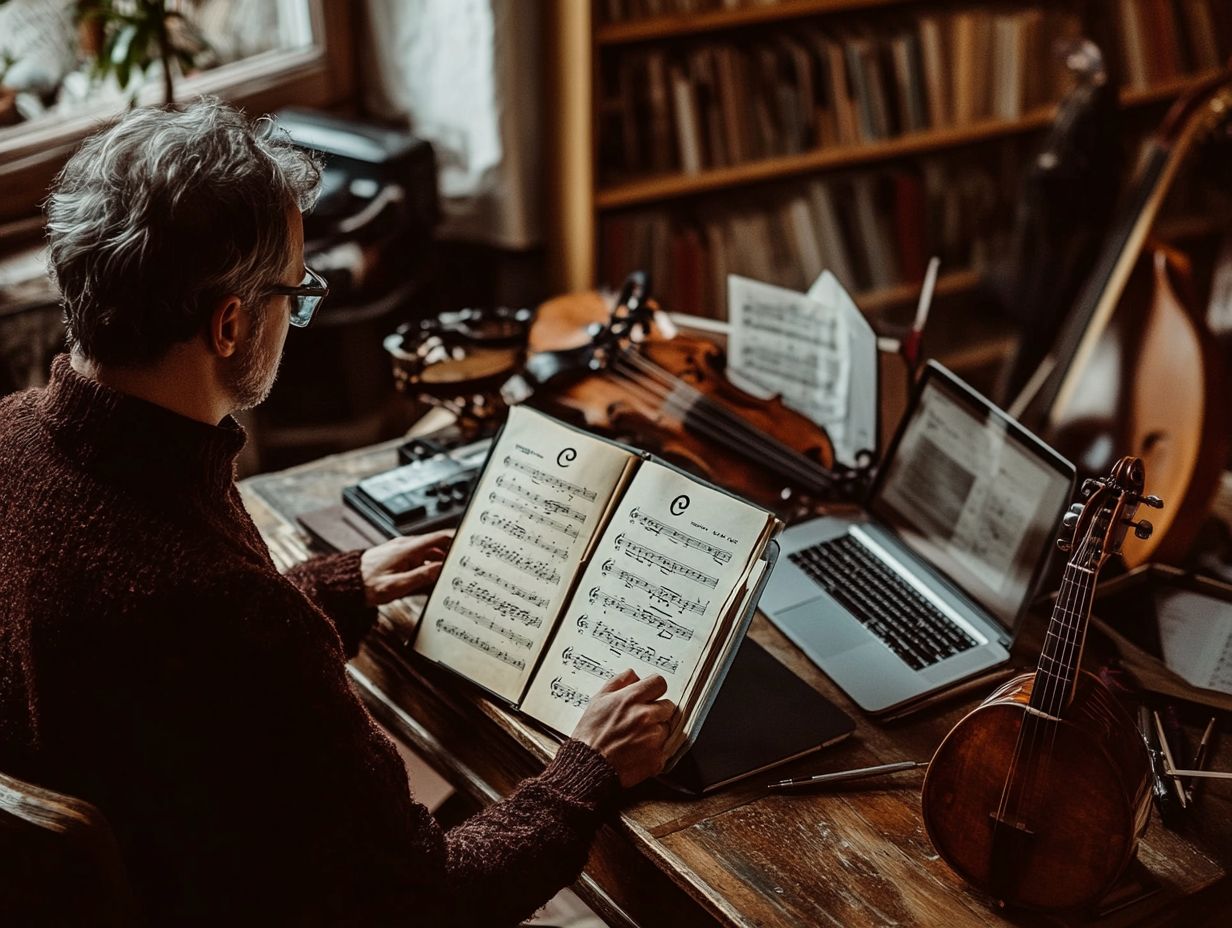
Copyright infringement is a big issue in the music industry. It frequently arises from the unauthorized use of an artist’s original creations. This can lead to financial and reputational harm.
Whether you’re a renowned artist like Bob Dylan or an emerging talent, understanding the details of copyright laws is essential. It helps you safeguard your rights and take appropriate legal action against those who violate them.
Common Forms and How to Avoid Them
Common forms of copyright infringement in the music industry include unauthorized reproductions, derivative works, and performance rights violations. All of these can jeopardize your livelihood as an artist.
By understanding these infringement types, you can take steps to prevent unauthorized use of your music. Stay vigilant about how your work is distributed, whether through social media, streaming services, or live performances.
Collaborating with experienced music lawyers is crucial. They can provide helpful tips for understanding copyright laws.
Having proper licensing agreements in place is your shield against unauthorized adaptations or public performances. This ensures you receive the credit and compensation you rightfully deserve for your creations.
Don t wait formalize contracts now to protect your music! This minimizes the risks associated with ownership disputes or misuse of your intellectual property.
How to Copyright Your Music
Copyrighting your music is a crucial step in safeguarding your original works. It ensures that you have the legal backing to enforce your rights effectively.
By registering your copyright with the appropriate office, you validate your authorship and establish a public record that can prove invaluable in the event of disputes.
Taking action now helps you safeguard your creative work.
Steps for Registering Your Music
To register your music copyright, you need to follow specific steps to ensure your original work is recognized and safeguarded under copyright laws. This includes completing necessary forms, paying applicable fees, and submitting your music to the copyright office to establish a public record of your authorship.
Start by visiting the U.S. Copyright Office’s official website. There, you ll find comprehensive guidelines that clearly outline the registration process. Gather your music along with any relevant documentation that supports your authorship, such as lyrics or recordings.
Next, fill out the appropriate online form most people opt for Form SR for sound recordings. Be sure to review the fee structure, which varies depending on the type of work you re registering. Once you ve completed the form and processed your payment, compile your music in the required format for upload.
Remember to keep copies of everything for your records and stay updated on the status of your application via the Copyright Office s system.
Other Ways to Protect Your Music
While copyright registration is essential, you have several other effective strategies to protect your music and artistic expression in the industry.
By utilizing contracts, trademarks, and properly managing music licensing agreements, you can enhance the safeguarding of your rights as an artist. This helps prevent any unauthorized use of your work.
Using Contracts and Trademarks
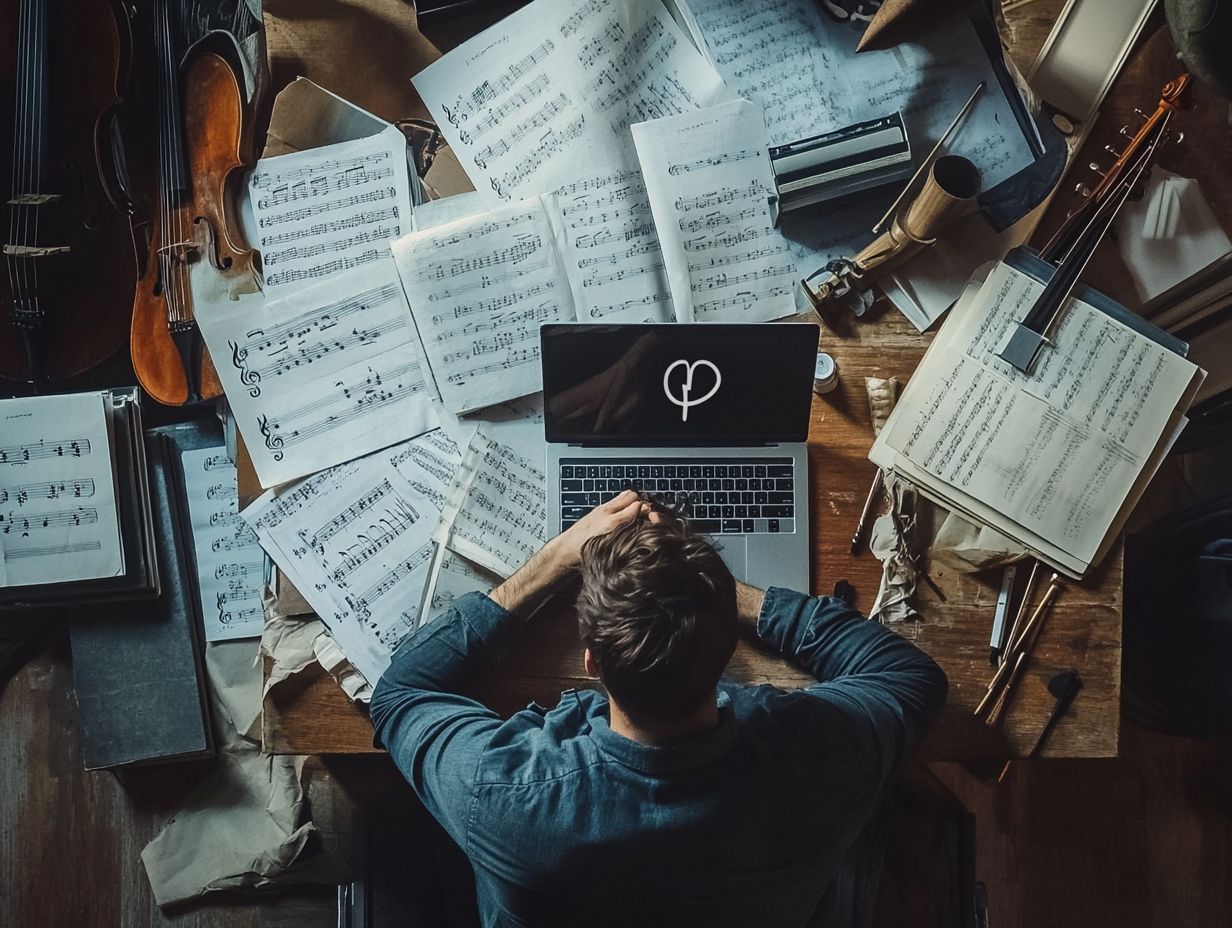
In the music industry, utilizing contracts and trademarks is crucial for artists. These tools establish clear boundaries around rights and the usage of works, providing strong protection and setting the stage for successful music licensing agreements.
Contracts act as foundational documents that outline the roles and responsibilities of artists, producers, and music publishers. They ensure that everyone is clear on their contributions and compensation, specifying terms related to royalties, distribution rights, and creative control. This clarity helps reduce disputes and promotes a collaborative atmosphere.
Trademarks safeguard your unique brand identity, which is vital in a competitive marketplace. By effectively leveraging both contracts and trademarks, you protect your creative expressions and business interests, enhancing your standing in the market.
The Future of Copyright in the Music Industry
The future of copyright in the music industry presents an evolving landscape, shaped by technological advancements and shifting consumer behaviors, especially regarding digital reproduction and streaming royalties.
As platforms like Spotify and Apple Music rise to prominence, the implications for copyright laws and artist rights grow increasingly complex, demanding your attention and understanding.
Current Issues and Potential Changes
Current issues surrounding copyright in the music industry involve disputes over streaming royalties. There is a pressing need for reforms in copyright laws to better protect artists in this digital era.
As the landscape evolves, potential changes could redefine how artists earn revenue and safeguard their creative expressions. Ongoing debates focus on the fairness of current royalty distribution frameworks, often leaving many artists feeling shortchanged especially those relying heavily on streaming platforms for their income.
Independent musicians and songwriters are concerned about the lack of transparency in how royalties are calculated and distributed, particularly when competing against major record labels.
With digital platforms continuing to evolve, calls for comprehensive reforms are growing louder. Stakeholders, from record executives to consumers, seek solutions that ensure fair compensation for creators.
This is a pivotal moment for change that could reshape the music industry!
Frequently Asked Questions
What is copyright and why is it important for musicians?
Copyright is a legal concept granting creators exclusive rights to their original work, preventing others from using or copying it without permission. For musicians, copyright is crucial as it protects their original music from theft or unauthorized use.
How does copyright protect musicians?
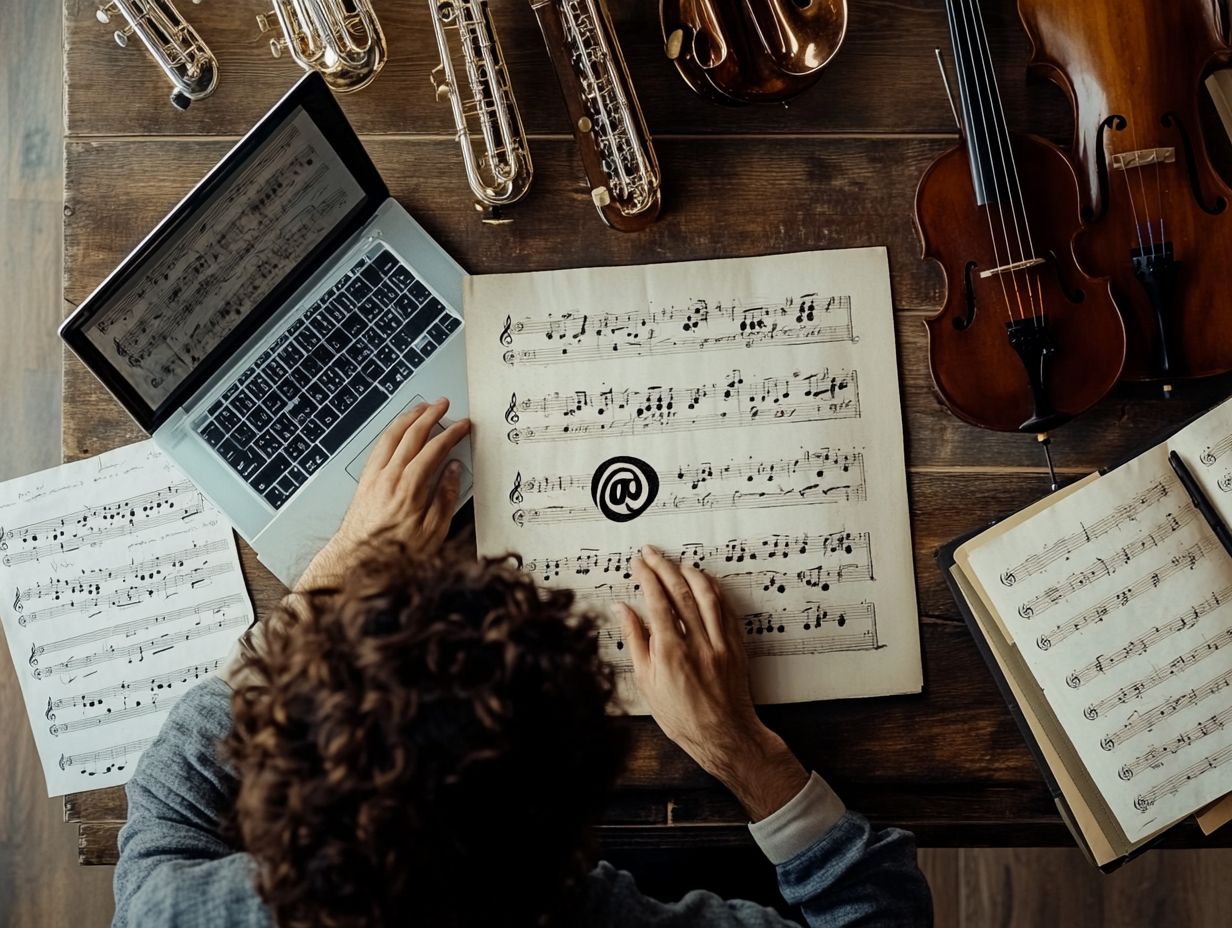
Copyright gives musicians the right to decide how their music is used, distributed, and performed. It ensures they receive recognition and compensation for their work, whether through royalties, licensing fees, or other payments, highlighting the importance of copyright in the publishing industry.
What are the benefits of copyright for musicians?
- Protection of intellectual property
- Control over music usage and sharing
- Ability to earn a living from their work
- Building a reputation and establishing themselves in the industry
Do musicians have to register for copyright?
No, copyright automatically applies to original musical works as soon as they are created and fixed in a tangible form. This means musicians do not have to register for copyright to be protected. However, registration can provide additional legal benefits and proof of ownership.
What Happens if Someone Infringes on a Musician’s Copyright?
If someone uses a musician’s work without permission, they infringe on copyright. This can lead to a lawsuit for damages.
Musicians can also send a cease and desist letter. This letter demands that the infringer stop using their music.
How Can Musicians Protect Their Copyright?
Musicians have automatic copyright protection when they create their work. They can enhance this protection by adding a copyright notice.
Registering their work for copyright is another effective step. Using contracts or licenses helps define how others can use their music.

